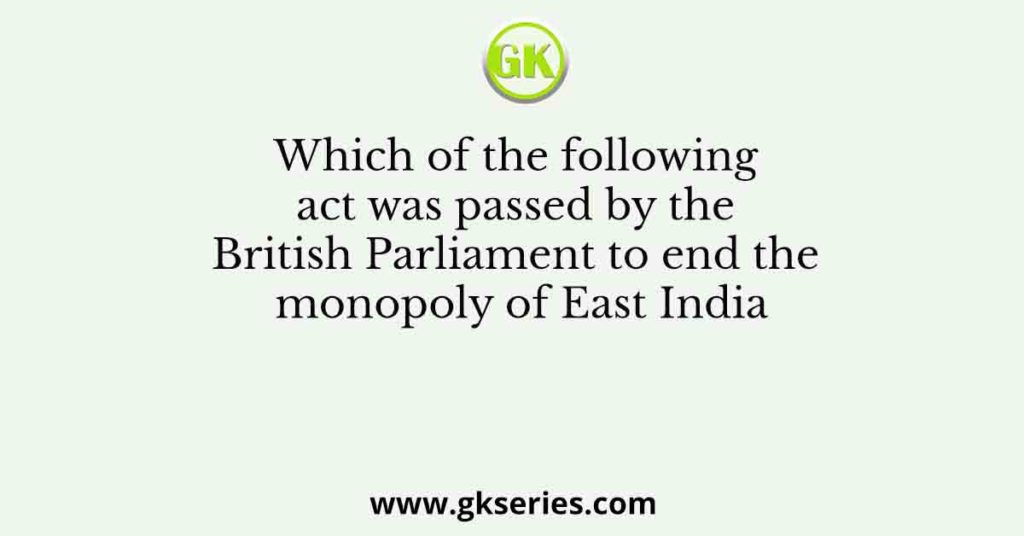Which of the following act was passed by the British Parliament to end the monopoly of East India

Q. Which of the following act was passed by the British Parliament to end the monopoly of East India Company’s trade in India?
(a) Regulating Act, 1783
(b) Charter Act, 1863
(c) Charter Act, 1813
(d) Government of India Act, 1853
Ans: (c) Charter Act, 1813
Explanation: The correct answer is (c) Charter Act, 1813.
The Charter Act of 1813, passed by the British Parliament, played a significant role in ending the monopoly of the East India Company’s trade in India.
Prior to the Charter Act of 1813, the East India Company held a monopoly over trade between Britain and India. However, this act marked a shift in the company’s role and introduced changes to its trade policies.
Under the provisions of the Charter Act of 1813, the East India Company’s monopoly on trade was partially abolished. The act allowed for the entry of private traders into India, breaking the exclusive control of the company over commerce. It permitted Indian territories to be open to private British traders, which led to increased competition and a diversification of trade in the region.
Furthermore, the Charter Act of 1813 also introduced other reforms related to the governance of India, such as the establishment of a Board of Commissioners for the Affairs of India in Britain, which had regulatory powers over the East India Company’s operations.
Therefore, the Charter Act of 1813 was the act passed by the British Parliament to end the monopoly of the East India Company’s trade in India.